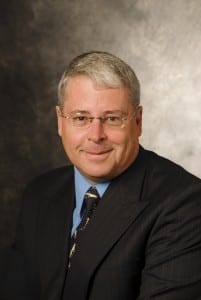 The COVID-19 global pandemic has disrupted every aspect of our lives. Educational institutions, companies, non-profit organizations, government agencies have implemented social distancing policies and mandated telecommuting. Schools have closed and children are engaging in at-home learning alongside parents who may be remotely working for the very first time. What can managers do to lead effectively?
The COVID-19 global pandemic has disrupted every aspect of our lives. Educational institutions, companies, non-profit organizations, government agencies have implemented social distancing policies and mandated telecommuting. Schools have closed and children are engaging in at-home learning alongside parents who may be remotely working for the very first time. What can managers do to lead effectively?
Embrace Technology: Get out of your comfort zone to lead in new ways using technology.
- Take advantage of online trainings to learn how leverage existing and new technologies to connect virtually with employees.
- Model effective online meeting behaviors by utilizing features such as polling and chats.
Nurture Relationships: At this time of physical distancing, your people need to know you care about them.
- Through existing or new technologies, take time to visit with them to find out about their situation and how they are handling the disruption.
- Provide them with resources to support their emotional and physical well-being.
- Encourage your people and praise them for their work efforts and flexibility.
Establish New Norms: Let your people know you will be reaching out to them more often and why.
- Your people need to understand that increased communication and monitoring does not mean you are trying to micromanage their work. You no longer have the luxury of walking down the hall to check in.
- Get comfortable with real life being part of your communication. Relax your expectations regarding formal communication via phone and other technologies. Children, pets, and partners may suddenly walk into the room in a video call.
- Shifting to a 100% remote workforce means that social norms of communication and interaction have to evolve. Clarify with your team about how information will be shared and the best ways to communicate for urgent and non-urgent messaging.
Reassess Priorities: What was important two weeks ago may no longer be as urgent or relevant.
- Adjust goals and expectations to determine where to focus time and attention. Communicate these changes to your team. Take time to help your people think through the rationale for the adjustments.
- Monitoring of key performance indicators may need to be altered and new metrics may need to be developed.
Update Procedures: It’s no longer business as usual.
- Determine how processes need to change and invite your employees to generate solutions that meet the demands of your environment.
- Ensure people understand the critical junctures and decision-points of key procedures.
Greta Davis, Ph.D., specializes in career counseling and serves as department chair and clinical faculty member of SMU Simmons’ Dispute Resolution and Counseling program.
 Tom Hartsell, J.D., clinical professor in the Department of Dispute Resolution and Counseling, received the 2021 Susan C. Adams Award from the Texas Association of Mediators during its annual conference. The award is the organization’s highest recognition and honors exceptional efforts in promoting and furthering the use of mediation in the state.
Tom Hartsell, J.D., clinical professor in the Department of Dispute Resolution and Counseling, received the 2021 Susan C. Adams Award from the Texas Association of Mediators during its annual conference. The award is the organization’s highest recognition and honors exceptional efforts in promoting and furthering the use of mediation in the state.



